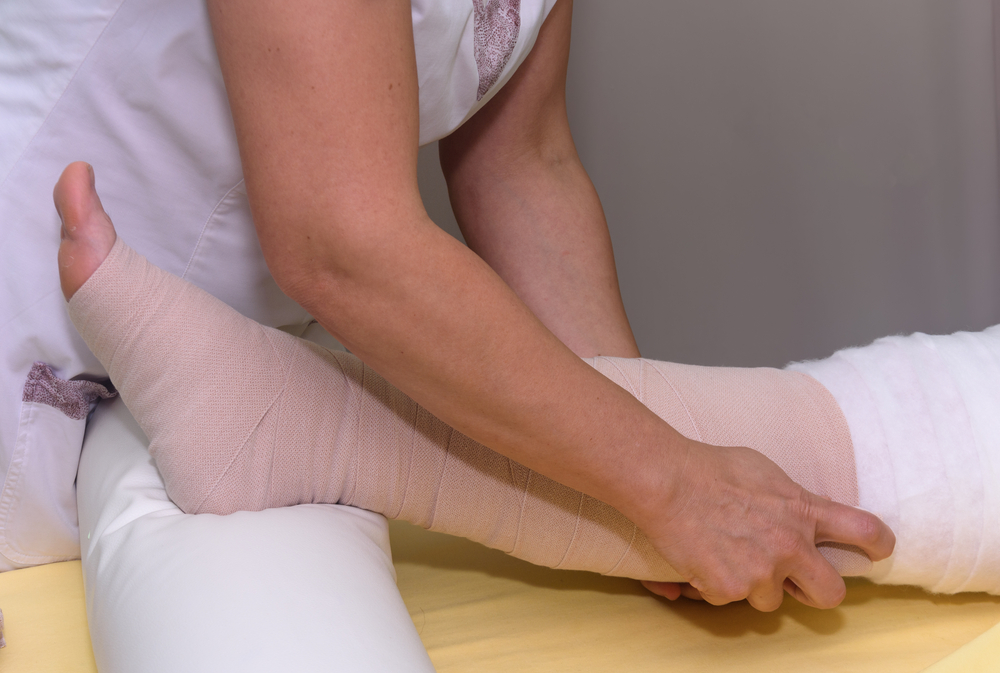Lymphedema: What It Is and How to Treat It
 Millions of Americans suffer from lymphedema, and yet many others don’t know what this condition is or how it’s treated. If you’re looking to learn more about what lymphedema is, what causes it, and how to treat this condition, keep reading. This article will provide you with information on how to properly manage your lymphedema on a daily basis.
Millions of Americans suffer from lymphedema, and yet many others don’t know what this condition is or how it’s treated. If you’re looking to learn more about what lymphedema is, what causes it, and how to treat this condition, keep reading. This article will provide you with information on how to properly manage your lymphedema on a daily basis.
What Is Lymphedema?
Lymphedema is a condition related to the movement of lymph fluid throughout the lymphatic system. Those with lymphedema are not able to properly circulate their lymphatic fluid, causing it to pool in parts of the body, especially the arms and legs. The pooling of lymphatic fluid can cause pain and swelling in the impacted limbs, as well as leading to other complications such as stiff and painful joints, slower healing, and a higher risk of developing infections.
What Causes Lymphedema?
Lymphedema is most often seen in cancer treatment survivors. Chemotherapy and radiation can damage the lymph nodes and other aspects of the lymphatic system, making it difficult for your body to properly circulate fluid through the body. While there are other ways that the lymphatic system can be damaged, cancer treatments are the most common cause of lymphedema.
How Is Lymphedema Treated?
Unfortunately, there is no cure of lymphedema, so treatment for this condition is primarily focused on managing symptoms to minimize swelling and discomfort, as well as reducing the risk of developing further complications. Managing your lymphedema symptoms requires many lifestyle changes, as well as some additional medical equipment that can improve your quality of life on a daily basis. Here are some tips for effectively managing your lymphedema at home:
- Take good care of your skin. Lymphedema can cause your skin to dry out and harden. It’s extremely important that you properly moisturize your skin on a daily basis. Use ointments like Vaseline on the driest, hardest patches of your skin, such as heels, knees, and elbow; and make sure to use lotions and moisturizers on a daily basis. It’s best to do this at night, when the lotion has extra time to do its job.
- Wear gloves when there’s a risk of injury. Most people don’t give much thought to getting a few little cuts or nicks on their hands. For those with lymphedema, however, even a small cut can result in complicated infections. Part of managing your lymphedema will be preventing these kinds of injuries. Wear gloves any time there’s a risk of cutting or scratching your hands, such as when you’re cooking or tending to your landscaping.
- Treat all cuts seriously. If you do get a cut anywhere on your body, don’t just dismiss it. Clean it, apply an antibiotic cream, and cover it with a bandage to reduce the risk of an infection.
- Don’t sit with your legs crossed. Crossing one leg over the other while sitting inhibits the flow of fluids through your body. Even those with an efficient lymphatic system will experience discomfort when sitting with their legs crossed for too long, such as having one foot fall asleep. If you have lymphedema, crossing our legs while sitting will make the swelling and discomfort in your limbs even worse.
- Exercise regularly, but don’t overdo it. Regular exercise promotes the flow of fluids through the body, especially exercises that contract the muscles in the impacted limbs. However, overexerting yourself can make your lymphedema worse, so be sure to talk to your doctor about the right exercise level for you.
- Wear compression garments on the impacted limbs. If your legs are most impacted by your lymphedema, compression socks or tights can apply a gentle pressure that promotes the movement of lymphatic fluid so that it doesn’t pool in your legs. If your arms are more often impacted by your lymphedema, compression sleeves are also available.
- Consider a lymphedema pump. These can be attached to an inflatable sleeve that you wear over the impacted limb. Then, a motor pumps air into the sleeve, inflating and deflating it at regular intervals to gently squeeze and release the limb. This helps assist with fluid movement.
Let Us Help You Find the Right Tools for Managing Your Lymphedema
If you suffer from lymphedema, having the right tools on hand can make a big difference in managing your lymphedema symptoms effectively. We recommend speaking to your doctor to get a prescription for the right level of compression garment, or for any other recommended medical equipment. Then, come to Medical Xpress to get assistance with finding the tools you need to manage your lymphedema.